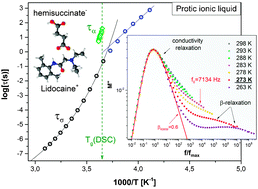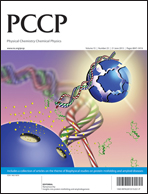Decoupling of conductivity relaxation from structural relaxation in protic ionic liquids and general properties
Abstract
The main focus of this work is the study of conductivity relaxation of amorphous lidocaine hemisuccinate near the glass transition at ambient pressure. Measurements have been made using broadband


 Please wait while we load your content...
Please wait while we load your content...